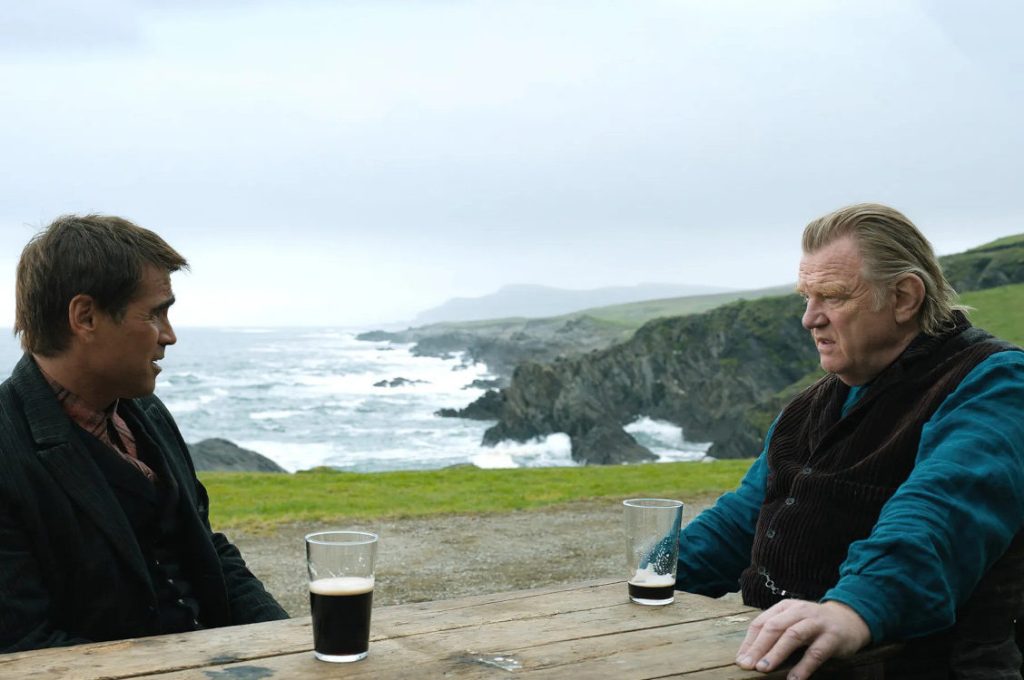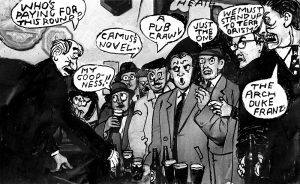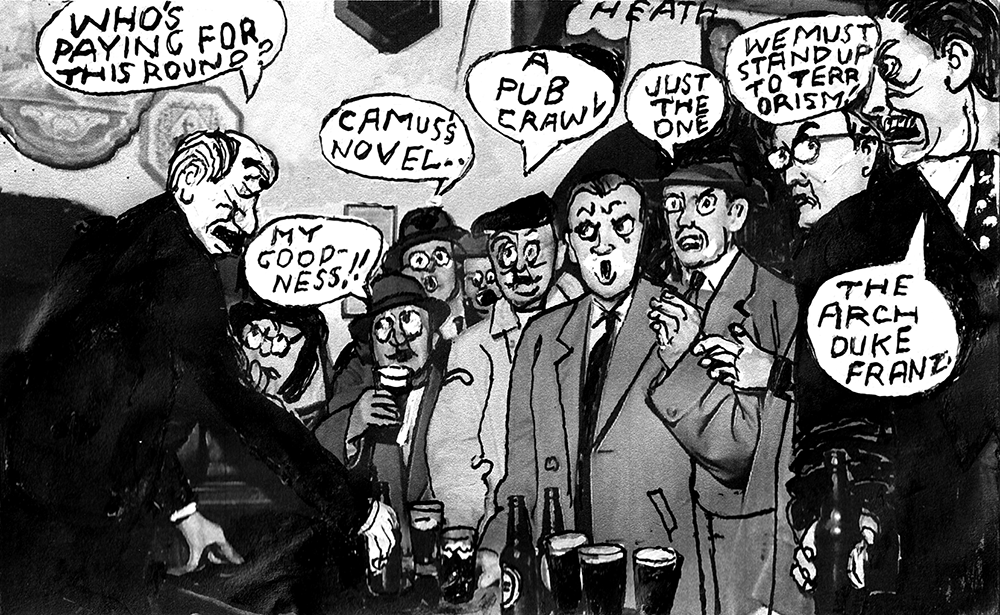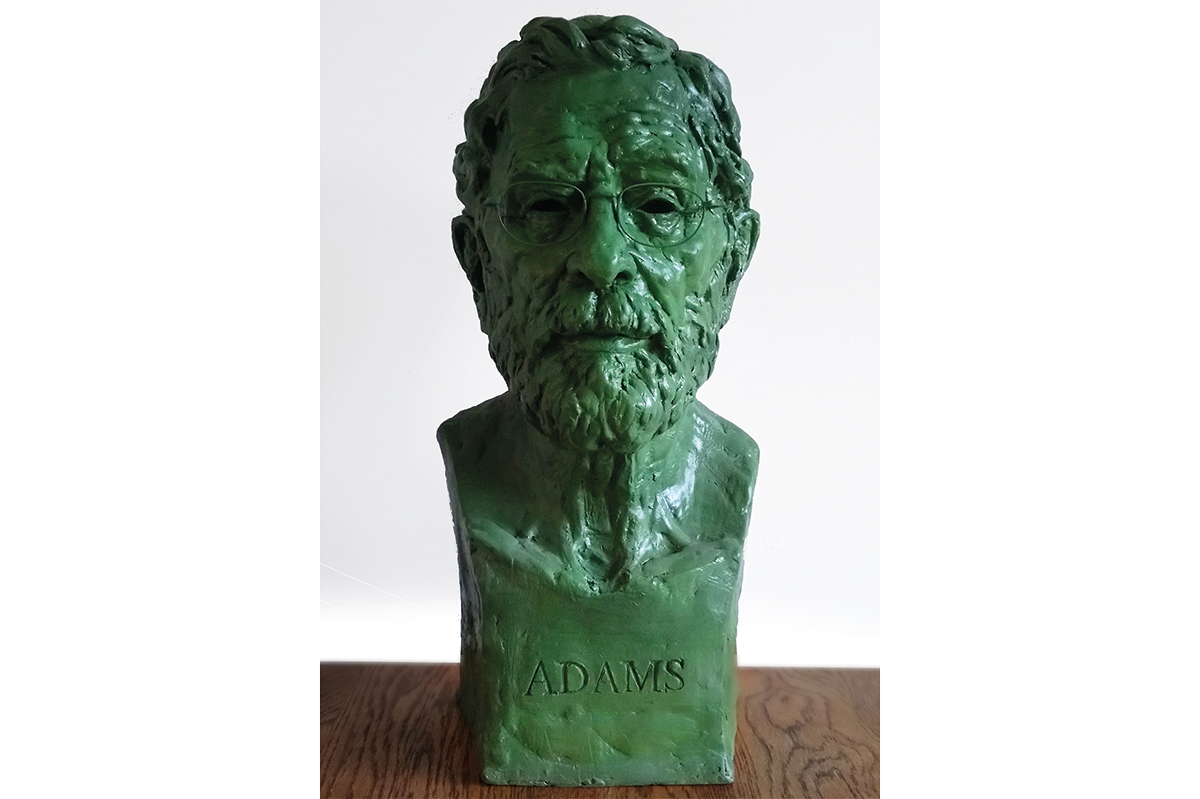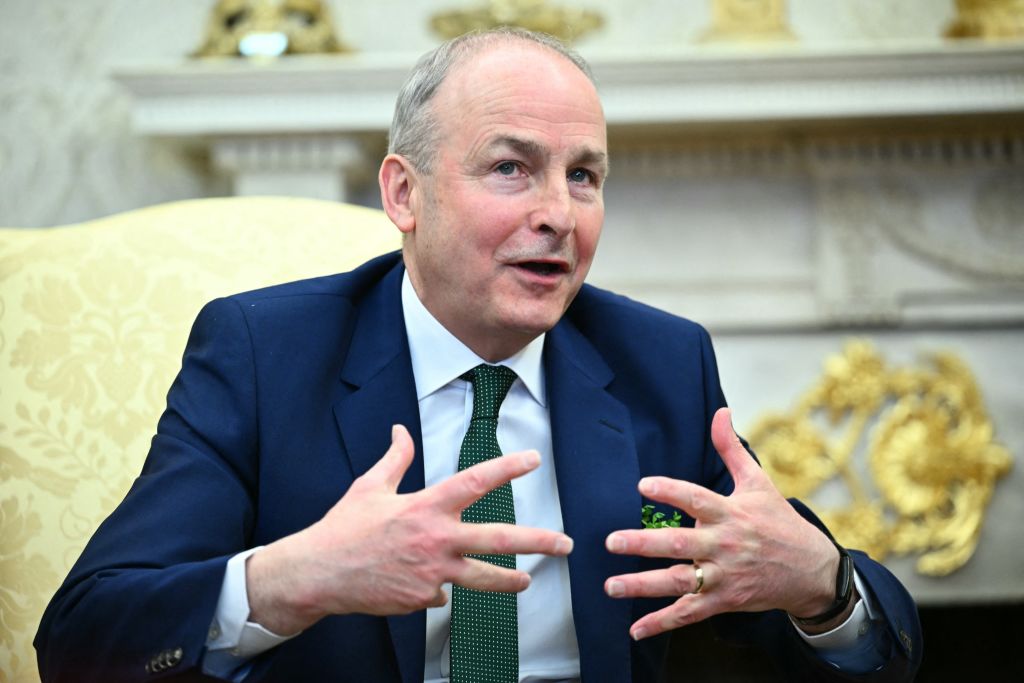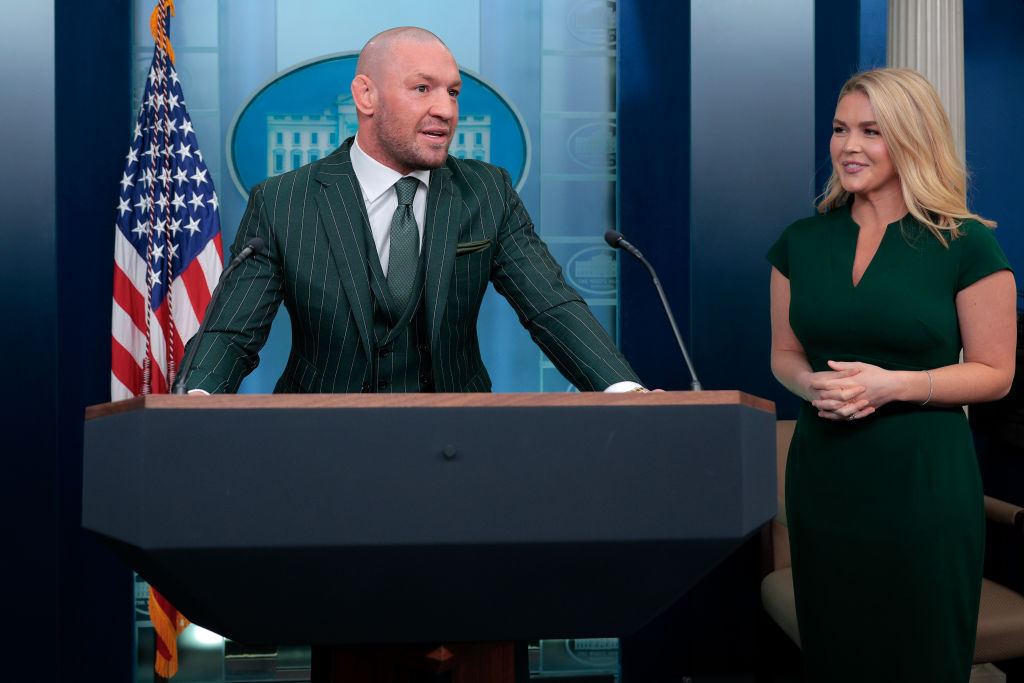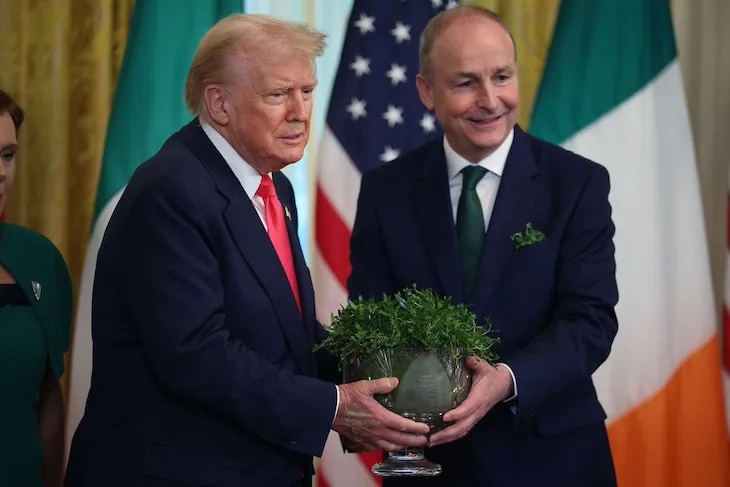Sweeping down and around the Aran Islands, The Banshees of Inisherin begins as any Irish film would. The official trailer had given little away, besides a couple of strong-sounding accents and weak-looking Guinness. Very Irish; too Irish, perhaps.
Despite my respect for Martin McDonagh and reverence for In Bruges, even I felt trepidatious. My father, too, had an air of skepticism about him. The line between Irish and Oirish is so fine — so easily and often overstepped — that when the film opened on gray cliffs and green fields, you could be forgiven for fearing the worst.
For despite the accelerated evolution of contemporary Irish cinema, Hollywood still speaks fluent Oirish. To this day, snake-oil versions of Irishness sell as well as the real thing, especially when Irish salesmen are involved. Local audiences groan, but global audiences do not taste the difference.
Back home, McDonagh himself has faced accusations of being such a salesman, particularly in the wake of the off-Broadway success of The Cripple of Inishmaan and The Lieutenant of Inishmore, two earlier stageplays that, again, take place on the Aran Islands.
In my eyes, the accusations carried little weight: superficial readings of the writing and/or the writer, whose London-Irish background was often touted as damning evidence in and of itself. And yet, gray cliffs, green fields. As I said, trepidatious.
With the arrival of the score, however, my fears of Oirishness quickly melted away. For the voices we hear are not Irish at all, but Bulgarian: namely, those of the Bulgarian State Television Female Choir, singing a piece from Le Mystère des Voix Bulgares. It is a detail — a subtle nod toward otherworldliness — that will be caught by Irish audiences but largely lost on the rest of the English-speaking world.
When questioned by Simon Mayo about the conspicuous absence of traditional Irish music from the score, McDonagh casually shrugged the question aside. Speaking with Jazz Tangcay for Variety, however, composer Carter Burwell quotes McDonagh as being anything but casual about the decision-making process: “I hate that deedle-dee, old world Irish film music and I knew it wasn’t going to be that.”
The Irish fiddle plays a part, of course, but — rather like the Irishness of the film itself — emerges as a natural element of the story: not orchestrated from the top-down but occasioned from the bottom-up. Indeed, the signature piece is an original composition by Brendan Gleeson himself, who — speaking with Aedín Gormley — laughingly recalls McDonagh whistling suggestions down the phone. It is through such particulars — the subtle inflections, the pained expressions, which the cast and camerawork handle with utmost care — that Ireland reveals itself: an archaeological revelation, not an architectural one.
The generalities of Irishness, meanwhile, are not handled at all. Generally, one could argue that The Banshees of Inisherin is not a film about Ireland. Religion, famine, war: all the usual suspects of ye olde Irish cinema are, again, conspicuously absent (or inconspicuously present). Sitting down with Jess Cagle, however, Colin Farrell reveals that it was not always such. Earlier versions of the script — which has gone through various iterations over the past seven years or so — contained a great deal more gunpowder and plot. Yet, by closing off many of the traditional, higher-order avenues into Irishness — genre, convention, plot — McDonagh clears the path for an unusually deep characterological study: not of the Irish psyche, but a pair of them. As it turns out, the lives of Pádraic and Colm do not need the weight of the Irish Civil War to become too heavy to bear; a heaviness to which Farrell and Gleeson are given the latitude to do justice. After all, as McDonagh himself is careful to underscore: “In its simplest terms, it’s just about two blokes falling out.” Not two Irishmen; just two blokes, who happen to live in Ireland. It may be a distinction without a difference to global audiences; yet, to local ones, it makes all the difference in the world.
By stripping The Banshees of Inisherin down to its barest elements, however, McDonagh opens himself up to an old, familiar line of attack: namely, accusations of the “Stage Irish” variety. Island setting, older sophisticate, younger simpleton: the parallels to Father Ted were always going to be drawn (as were the critics’ knives). With a deftness reminiscent of the Father Ted trio, however, McDonagh, Farrell and Gleeson do not dodge the Oirish question but lean in. For besides the sweeping cinematography, the film is stagey: dialogue reigns, while locations and extras are kept to a bare minimum. On paper, moreover, the dialogue is Oirish: circular and songlike, the island accent bears the hallmarks of paddywhackery (so it does). Yet, to fixate on the Oirish exterior of a character like Pádraic, to the neglect of the particulars underneath, is to fall victim to the very narrative fallacy that McDonagh (whose first language is irony, remember) seeks to undermine. For against so authentic a background, the Oirishness that McDonagh drags to the fore becomes — to the Irish eye, at least — blindingly ironic; an in-joke, for those of us all too familiar with the tropes of Hollywood’s past.
Moreover, back home, judging by the lack of headlines about “appropriating Irish culture” and “perpetuating Stage Irish stereotypes,” the joke seems to have landed. We could be forgiven for forgetting McDonagh’s a Londoner at all. Perhaps some have. Perhaps we should.



